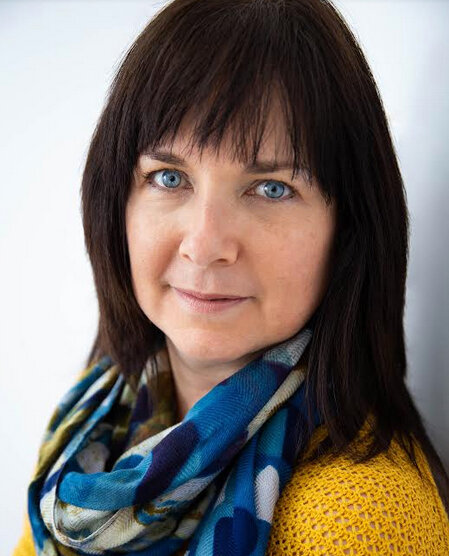A strategy to improve health outcomes in RI
MLPB helps to bring legal advocacy into the doctor’s offices
Or, the act of self-realization by Dr. James Fanale, the former president and CEO of Care New England, who told a reporter from The Boston Globe: “I’ve taken care of patients for 40 years. Now I’m on the other side of it. I never realized what people go through.”
The reactions of Steinberg and Fanale illustrated the gap between patient and provider, between the power elite and those whose voices are ignored and not heard – and not listened to. Call it an empathic break.
PROVIDENCE – Thanks to ConvergenceRI for the opportunity to introduce myself to its readership. I know MLPB is known in these pages and in Rhode Island [for example, we were thrilled that RI Life Index release keynote speaker Dr. David Williams gave MLPB a shout out].
But I am new to my role -- I became Executive Director in January of 2023, after 20 years in legal aid organizations in Massachusetts. It has been wonderful getting to know our collaborators in Rhode Island this past year.
MLPB is a path-breaking organization credited as the first medical-legal partnership [MLP] nationwide. Launched in the Pediatrics Department at Boston Medical Center in 1993, MLPB became an independent program in 2012 under the fiscal sponsorship of TSNE. In 2017, we merged with RIMLP, and thus began our journey in the Ocean State.
Today our Rhode Island-based team, anchored by Jeannine Casselman and Rebecca Kislak, serves 11 partners here. More than 400 MLPs are now up and running in the U.S., and MLPB has evolved too. Instead of providing representation to individuals as we first did, today we focus on supporting medical and social care communities. Through training, consultation, and technical assistance, MLPB equips care teams with legal education and empowers them to take action to address the health-related legal and social needs of those they serve.
Closing the gaps in access to justice.
Why move away from downstream legal interventions? The gaps in access to justice are acute: most low-income people have civil legal needs, such as eviction defense and abuse prevention, and most of those needs go unmet.
In fact, low-income Americans do not get any or enough legal help for 92 percent of their substantial civil legal problems. While anyone facing a criminal charge is guaranteed legal representation, there is almost nowhere where legal counsel is required for civil issues.
Legal aid organizations make heroic efforts for their clients, but the reality in Rhode Island and elsewhere is that most of these organizations do not have capacity to meet the need.
- In Rhode Island, there is 1 [!] legal aid attorney for every 10,000 low-income people.
Given that sobering backdrop, MLPB made the decision several years ago to move upstream. We recognized that democratizing access to legal information and enabling those who are not licensed attorneys to operate in a legal problem-solving space are radical and necessary steps to improve health and increase access to justice.
Trusted health care teams are uniquely positioned to be able to recognize, triage and address the legal needs of their patients and clients. Housing instability, food insecurity, and family violence are legal problems with dire health consequences that frequently surface during the provision of care.
What if some of these problems could be resolved before they become legal crises? What if we can take the pressure off an already overburdened legal aid system? MLPB’s approach fosters this kind of prevention.
A soon-to-be-published evaluation conducted by one of MLPB’s partners confirms this upstream work is essential to holistic care. The report found that care teams who work with MLPB understand complex bureaucracies, access critical resources, recognize systemic injustices, and ultimately, develop their own expertise to advocate for their clients to resolve some legal problems without the need for an attorney.
Our Rhode Island projects embody a wide range of care delivery models, and include:
- Care team embedding, consultation, and customized trainings at large health systems such as the Integra Community Care Network and the Thundermist Health Center Accountable Care entity.
- A pilot coordinated by Care Transformation Collaborative [CTC-RI] to implement the DULCE model to five medical practices. DULCE, an early childhood intervention co-designed by MLPB and Boston Medical Center, has been shown to result in better health outcomes and access to benefits.
- A CDC-funded coalition, including the R.I. Department of Health, the Community Health Worker Association of RI, CTC-RI, and MLPB to build the capacity of and deploy community health workers to leverage their lived experience, improve health care delivery, and strengthen community resilience to fight COVID-19.
- A learning collaborative funded by the Blue Cross Blue Shield of RI Community Health Fund to amplify the voices of older adults and improve screening techniques to identify and address health-related social needs for seniors.
- Starting in 2024, the R.I. Department of Health’s Office of Family Visiting will partner with MLPB to provide legal education and support for home visiting teams throughout Rhode Island.
MLPB may have started in Massachusetts, but we could not exist without our Rhode Island partners. Our work here is innovative and exciting, and I appreciate that so many organizations continue to invite us in to apply our vision to create sustainable and equitable solutions.
Could we see an MLPB team embedded in every health and social care entity in Rhode Island one day? I would love nothing more.
Amy Copperman, Esq., is the Executive Director of MLPB.






